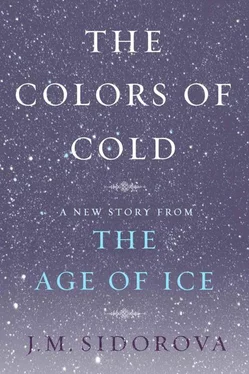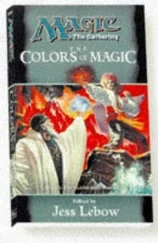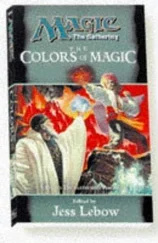I went through all the stages a lovestruck young man was supposed to check off: poetry, sleeplessness, sartorial concerns, and epistolary excesses. Svetogorov eagerly stepped into the role of my confidant. At long last, he cheered. He tutored me in strategy, interpreted her letters for me, and mobilized the whole vast network of his buddies to create a beneficial climate for our romance.
Social calls, hitherto avoided, now turned into conduits of courtship. I spent hours perched in the sitting room of the Maison Tolstoy on the Moika River, maintaining a polite conversation with a watchful Tolstoy matriarch and her elderly sisters, while all I wished for was but a single moment alone with Marie. Balls and fêtes became great windows of opportunity. Ah, the way she looked at me when we danced minuets! We must have roused smiles—a couple so mismatched in height. When a dance required that I lifted her off the floor, I had to restrain an urge to nestle her in the crook of my arm and spin all around the hall, carrying her like a precious gift of heavens. I could not believe I deserved her.
One day I received a letter from Moscow. Father wrote:
Son Alexander, we heard you are seeking affections of the youngest Tolstoy girl. Your stepmother, who is friends with their Muscovite relatives, warns that the girl’s frame is too narrow where it matters for childbearing but we say Tolstoys are a good stock and a respected house. Is this the only Tolstoy sister who answers your courtship? If so, lose no time and propose, you have our blessing. Your brother, if you don’t know it yet, is also considering matrimony, and may have settled his matters already.
My heavenly love, reduced to utilitarian terms of hip width! And, not least, I wished Andrei and I hadn’t been pitched in a competition of who’d marry first. But I did not question the prospect of proposing to the Tolstoy girl. That was what one did after one fell in love.
So I sprang into action. I paid a call to the head of the house, the formidable Count Vassily Tolstoy, made a mention of my honorable intentions with regard to his daughter, and received his permission to proceed.
The evening of that fateful day, Svetogorov decided to throw a party for my successful completion of the first step out of bachelorhood. I voiced caution, but he said, “You know your petite comtesse will accept. She is crazy about you. What do you have to worry about?”
Midway through our celebration we perceived an urgent need for ice. The kind of urge that has for centuries sent packs of young, excited males on a search for the missing ingredient for their revel, be it another sort of liquor, or treat, or the company of a particular person. It was July, the night was hot, our vin mousseux de Champagne may have been in dire need of chilling. It does not matter. What matters is we headed into the imperial larders.
Imagine a cheerful crowd of Leib Guard officers invading the imperial kitchens, holding the staff almost at gunpoint. Led, as ever, by Svetogorov, we descended into the basement, unlocked a door to a room, and flipped the lid of a chest to reveal layers of straw that covered perfectly preserved, huge slabs of ice. We whipped out our swords and attempted to hack at it, but the highest-grade imperial ice resisted splendidly. Then Svetogorov found an ice pick, and the next moment, shards of ice flew in all directions as if they were alive and trying to escape. My fellows frolicked after them, but I—I froze. One shard had lodged itself at my feet and lay there waiting. It glittered in the candlelight and it seemed to radiate confidence—a groomed, smooth, mature ice. It could have been old. As old as I. It could have been the very same ice from which Empress Anna’s Ice Palace had been built. The ice my parents had lain on. Do they not say that ice has memory? Suddenly, it seemed as if my mind—no, my whole body impaled itself on a peculiar realization: if I picked it up, it would become one with me.
Why?!
“Hey!” Svetogorov pushed me in the shoulder. “Wake up!”
I fled the basement.
* * *
Svetogorov said, “Marriage fears. Nothing out of the ordinary.” I begged to differ.
But in those days we did not speak so openly. Euphemisms, innuendos, and—for the more daring—French colloquialisms, oft misinterpreted, were all we had. Svetogorov used to say that I had been either too anxious or too idealistic with the ladies; in private, he may have thought that I simply couldn’t achieve an erection. That, I could. What I could not do was explain to him how strange were the fears that struck me after the visit to the ice box. As grotesque as they were vague, they fled the torch of reason but returned tripled the moment reason looked the other way. What if some curse had been precipitated on me and my brother at conception? Was that why Andrei disliked me? What if Marie would be repelled by me just as others had been? No matter how fond of me she was now, what would she do on our connubial night?
And could I—should I—talk to her about it?
* * *
The gentle humor of the rites of courtship is that after one’s intent had been declared, everybody conspires to create opportunities for imminent proposal. Watchdog aunts and nosy sisters now flutter out of the room whenever one pays one’s call. Everybody, including the bride-to-be, stares at one with bright anticipation. Yet, time after time, one fails to deliver.
Same as ever, that day: we were walking down a path in the Italian Gardens, and Marie’s mother, uncharacteristically interested in every rose along the way, just kept falling farther and farther behind. I grew tenser by the minute, which finally caused Marie to take matters into her own hands. “ Mon ami, forgive me, but I can’t help but see you are ill at ease with me. I should like to know the reason. I would hate to cause you an upset and not amend it.”
I stopped. I could lie or evade. Or confess. Did we not love each other? Ought we not to speak of our woes? So at long last I said, “I hope it would not be a surprise to you if I say that I’d be honored and delighted to ask your hand in marriage, but before I even dare to do it, I need to tell you something important.”
She was intrigued—pleasantly, so far. “But by all means! You should not have troubled yourself over it, I would gladly listen to you and help in any way.”
The next step was much harder. I took her hand and stopped looking her in the eyes. I squeezed the words out with much labor and torment, meander and pause. The summary of it was: “I have a concern about myself,” and “when we’re man and wife you may be dissatisfied with me,” and “if so I will never forgive myself for binding you in a union that was a burden,” and “I have to ask your permission to perform a trial of sorts before we are betrothed to each other.”
My innocent petite comtesse ! Only she could be so trusting, so kind and pure as to not take off running that very moment. She blushed, asking, “A trial ? What kind?”
And I blushed, answering, “A tryout. Of you and me. Whether we can touch each other.”
“But we—”
“As man and wife.”
“My parents will not—”
“It’ll have to be in secrecy.” The further I went down that hole, the more I thought that this was the best thing to do. The right thing.
She was biting her lips in thought. “Is there no other way?” she begged. What was she imagining, as she stood in those pristine gardens, on this August afternoon, amid roses and butterflies? Horror tales of maidens’ honor lost, of sinister men and their predations? Greasy beds under scarlet canopies? Or was she just figuring how she could slip from the Maison Tolstoy unnoticed? My loving, devoted Marie, she did not want to bargain—too much—with me. “I just can’t imagine how this could be arranged,” she said.
Читать дальше












